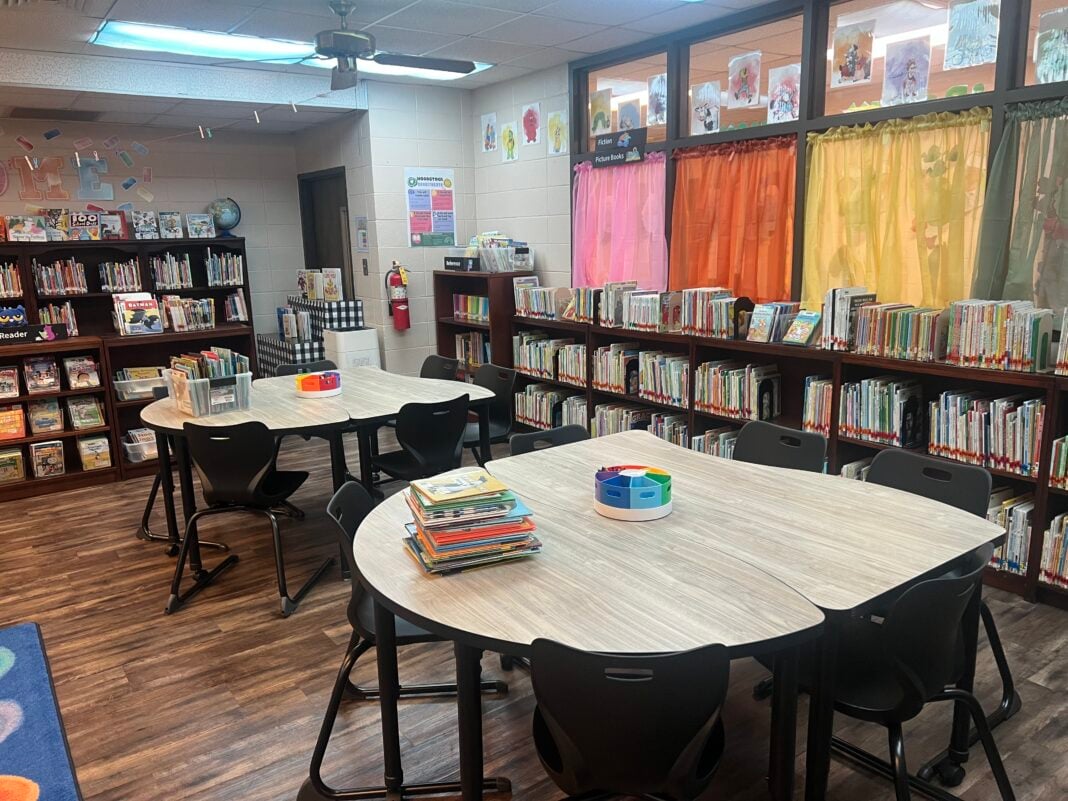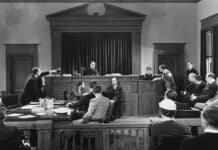Reprinted With The Permission of 1819news
On November 20, the Alabama Public Library Service (APLS) Board will meet to decide an issue reaching far beyond library walls: Do parents have the legal right to ask that publicly-funded libraries not provide minors with sexually-explicit material?
In recent months, the word censorship has been used so loosely that it has lost all meaning. At the September APLS Board meeting, chaired by John Wahl, representatives from the Fairhope Public Library repeatedly used that word to describe any policy limiting a minor’s access to what the APLS defines as sexually-explicit material.
That definition, issued in a statewide May 2025 memorandum, leaves little room for ambiguity.
“Sexually explicit” is defined as any visual, written, or audio content that depicts or describes sexual conduct, including:
Sexual intercourse, including genital-genital, oral genital, anal-genital, or anal-anal contact, whether between persons of the same or opposite sex:
• Sexual excitement;
• Nudity;
• Bestiality;
• Masturbation;
• Sadistic or masochistic abuse; and
• Lascivious exhibition of the anus, genitals, or pubic area of any person.
Despite this clarity, Randal Wright, Fairhope Library Board Chair, stated during the September meeting that the APLS definition was subjective. Wahl disagreed, reminding the board that shielding minors from adult material has never been censorship, it is an act of responsibility that both society and the law have long recognized.
What the Law Actually Says
Before forming an opinion, we did what every parent should do: read the law.
The First Amendment protects free expression, but does not guarantee unrestricted access for minors. For more than half a century, the U.S. Supreme Court has affirmed that protecting children from harmful or obscene content is not only permissible but also a compelling government interest.
In Ginsberg v. New York (1968), the Court upheld a law restricting the sale of sexual material to minors, even when the same content was lawful for adults. The justices ruled that the state has both the right and the duty to protect “the welfare of children.”
That principle was reaffirmed in United States v. American Library Association (2003), which upheld the Children’s Internet Protection Act. The Court ruled that libraries may filter obscene or harmful material for minors without violating the First Amendment. Libraries, it said, have broad authority to curate collections, enforce community standards, and protect children, all while preserving full adult access.
Relocating sexually-explicit materials from a children’s section to an adult section does not erase or ban them. It simply places them where a parent maintains control over their child’s access. Parents decide what their minor children read. If a minor has an unrestricted library card, they have access to every title. The only change is that minors are not the unintended audience.
This is not censorship. It is common sense grounded in constitutional law.
How It Reached Fairhope
Parents brought concerns to the APLS Board only after the Fairhope Public Library repeatedly refused, for nearly two years, to relocate books that violated both community standards and, later, the newly adopted state policy.
During that time, parents attended Fairhope Library Board meetings, city council sessions, filed formal reconsideration requests, and followed every step of due process after the new APLS standards took effect. There was never a moment of compromise from the Fairhope Library Board.
At the January 2025 APLS meeting, I presented copies of several books, along with documentation citing specific pages and content in question. The APLS Board reviewed them and confirmed that the material did, in fact, meet the state’s definition of sexually explicit.
The Board then asked us to verify that the Fairhope Library’s policies had been formally approved by the APLS, confirm that library officials understood the new standards, and demonstrate that the content clearly fell within the May 2025 definition.
We reviewed every title, verified page citations, cross-referenced meeting minutes, documented each reconsideration denial, and included all supporting correspondence. We spoke before the city council, attended library board meetings, and submitted a full report to the Alabama Public Library Service.
Hundreds of parents and citizens joined in, attending meetings, writing letters, and respectfully advocating for age-appropriate standards. Our message never changed: this is not about banning books; it is about accountability and protecting children within the same boundaries society accepts in every other public setting.
Fairhope’s Response
Our review of the Fairhope Library Board minutes revealed clear evidence that the Board understood what APLS required. Yet Board President Anne Johnson publicly declared, “The first part of this proposed change suggests that there is even such a thing as sexually-explicit content aimed at children, which is simply not the case.”
Despite this, the Board proceeded to rewrite and adopt its own policies using the APLS framework, not to comply, but to secure state funding while openly intending not to follow the standards they agreed to. Two months later, at the March 2025 APLS meeting, Fairhope Public Library’s state funding was paused pending compliance.
Since then, we have continued traveling to Montgomery to provide updates on which books have been moved and which remain accessible to minors.
The hostility toward parents and citizens who voiced concern at Fairhope Library meetings was unmistakable. Some board members dismissed the issue as political. But it was never political. It is about parental rights, the fundamental right to know what our children are exposed to, the moral right to guide their learning, and the inherent right to protect them from harm.
If the Fairhope Public Library wants the money, it must follow APLS policy.
Accountability and Gratitude
Now, the APLS Board must determine whether the Fairhope Public Library has met those standards. The outcome will affect not only state funding but also the library’s ability to remain in the Baldwin County shared library system. Fairhope has been in violation of its contract with the Baldwin County Commission for more than six months.
Whatever the decision, the APLS has shown professionalism and patience throughout this process. For months, the board has provided clear guidance and multiple opportunities for compliance. That reflects integrity, not ideology.
Parents are not the enemy. They are the first and most essential guardians of their children’s safety. Recognizing parental responsibility within public institutions does not suppress ideas, it honors families.
To the members of the APLS Board, thank you for standing firm in law and principle, for listening to parents, and for setting a moral and legal standard that keeps the trust of Alabama’s citizens intact.
In Fairhope and across Alabama, our libraries should be places of discovery, not confusion, spaces where knowledge grows safely under the care of both educators and parents. Freedom and responsibility are not opposites, they are the foundation of a healthy community.
And for that, we say thank you.
Rebecca Watson is the founder of Fairhope Faith Collective, a grassroots community dedicated to encouraging transparency, accountability, and family values in our schools and local government, while supporting leaders who honor the trust of Fairhope families. Send her an email at isaiah4031bc@gmail.com if you would like to get involved with causes across our state.

















